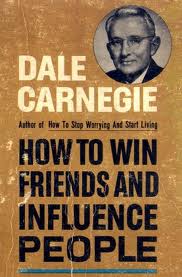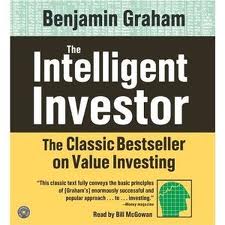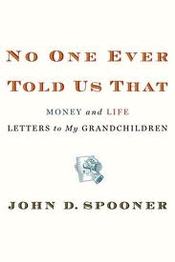 Rating: 5/5 I couldn’t have landed upon a better read. This book is awesome. Described simply, it’s about understanding the psychology of other people and therefore learning to treat them better with the intention of getting the best out of them. The book is so good that I had to add it to the recommended reading list in my newly published book, To Become an Investment Banker. The principles in this book can be applied to raising children, developing employees in one’s company, selling and any other interpersonal interactions. As usual, I will share some of the useful insights that were relayed. The book was also full of interesting examples and anecdotes but if you want these you will need to purchase it.
2 Comments
 I rate this book 2 out of 5. It wasn’t really what I was expecting. I wanted a series of well-explained investing tips. Instead, I found that the book had too many examples of what happened in the past e.g. during the recession of the 1930s and in the early 1970s when the edition I was reading was published. It wasn’t just general historical info that one can learn from but a mish mash of too much data from days gone by. I didn’t feel engaged at all, however, that could partly be due to the fact that I read it immediately after reading How to Win Friends and Influence People by Dale Carnegie, a truly first class book.
 I believe in the wisdom of older people regardless of wealth or educational background. (Most) old people are precious, you can't buy their life experiences, you can only hope to share in some of them. In this book, John D. Spooner shares a series of letters that he has written to his grandchildren to prepare them for "life" Both my grandfathers died before I was even two so I took to thinking of JD Spooner as a sort of surrogate grandfather, or papa as his grandchildren refer to him, as I read this book. I won't go into detail regarding all the examples he gave, however, I would like to share the following lessons I got from the book in the hopes that one or two might touch you. These are not exact quotes, they are just notes I took as I listened to the audiobook.
This book is a bible for the ups and downs of modern day life and it doesn't take long to read! The audio version is only five hours.  If you don't get any of the above, get the book, it will be one of the best "investments" you make all year. Some of my thoughts: I disagreed with his property investing strategy. He paid all cash when, I think, the genius of property investing in the developed world lies in leverage, using other people's money - but that's another blog on its own. When he covered bonds, JD Spooner didn't cover index-linked bonds, linkers. He simply said that it is equities that keep up with the cost of living, however, Linkers also keep up with inflation. Perhaps this was taking a step too far into high finance. In the section on staying in touch with his past, JD Spooner talked about a friend of his from high school that was a plumber in a town that he moved to. He called the guy to help him out with his plumbing. I wondered, how does he feel when he's in touch with people from his past that haven't achieved nearly as much as he has: he's a multimillionaire investment advisor and author of several bestsellers. In this book, "papa" talks about owning several million dollars of Citigroup stock before it tanked and that would only be one stock in an extensive portfolio, I expect. His friends must revere him, how does he relay to them that he's still the same old guy? This is the only query that remained outstanding by the time I finished the book.
|
By Heather Katsonga-WoodwardTime allowing, I love to read. If I read anything interesting, I will blog about it here. Categories
All
Archives
November 2015
|




 RSS Feed
RSS Feed






